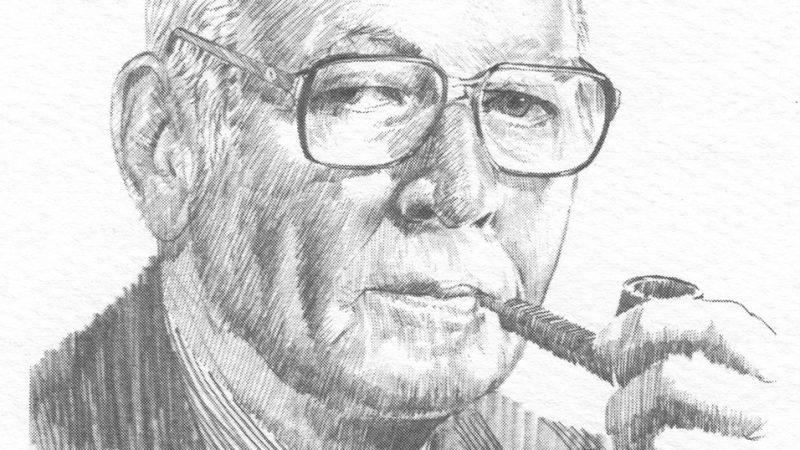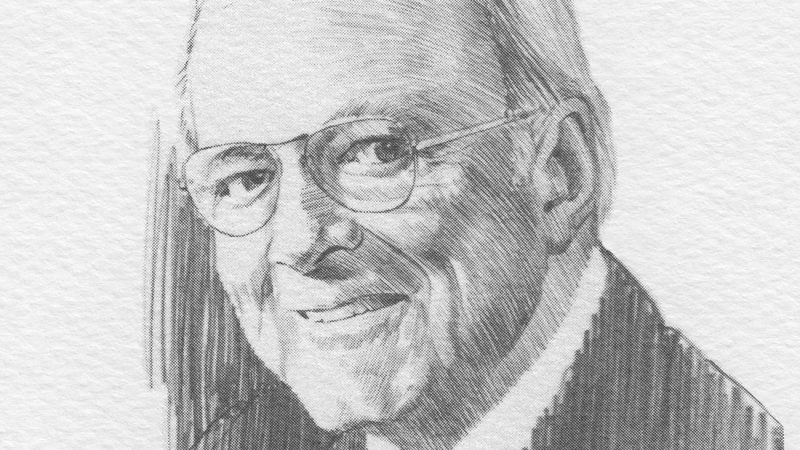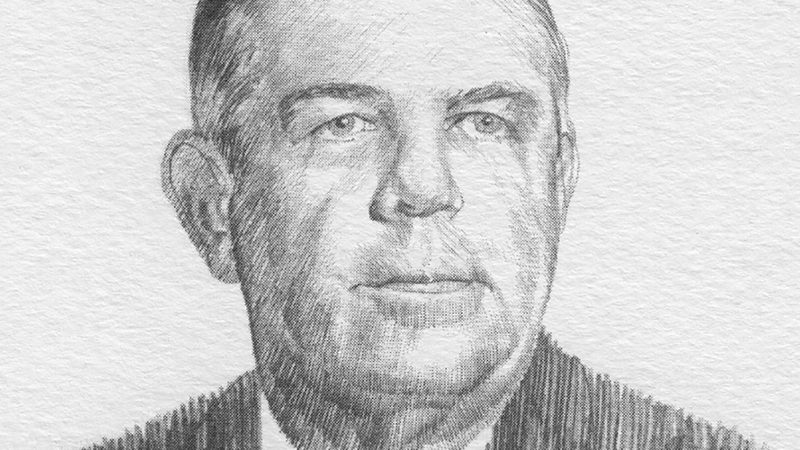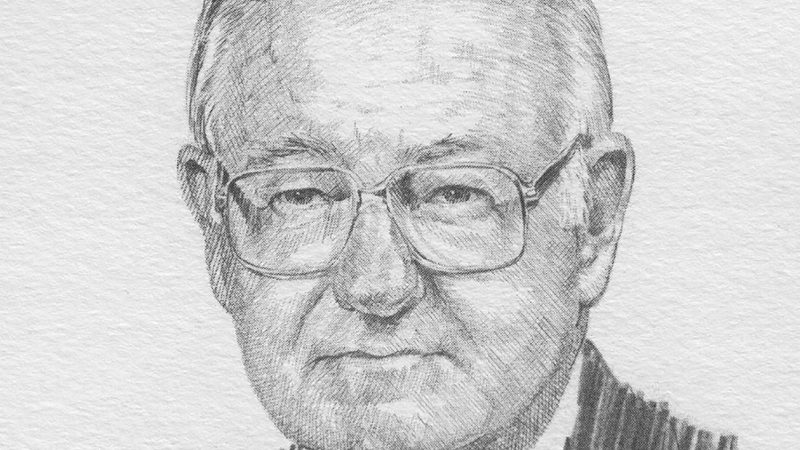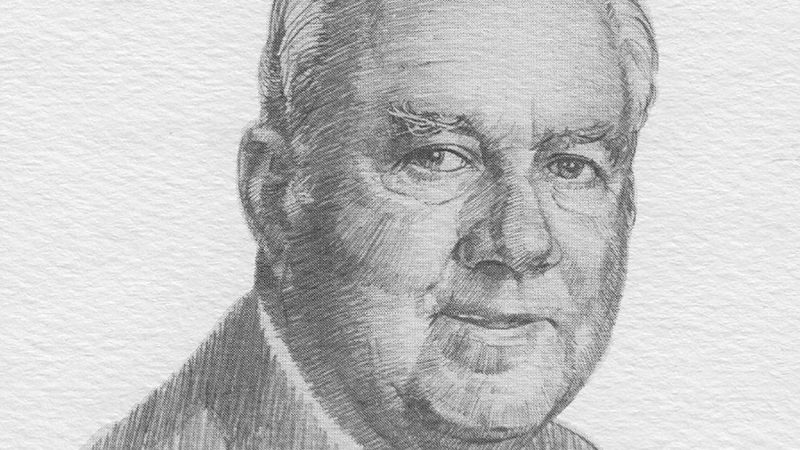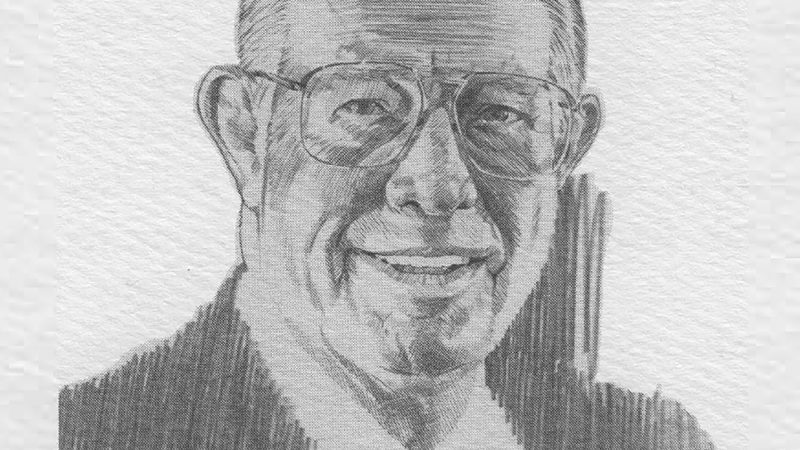Joseph S. Bruno
- October 26th, 2021
The life of Joseph S. ‘Joe” Bruno (Chairman Emeritus of Bruno’s, Inc., and Chairman of Big B, Inc. of Birmingham, Alabama) could well have been the subject of one of Horatio Alger’s books about boys of character who succeeded through hard work and honesty in the face of all odds. In 1980, Joe Bruno was one of the recipients of the prestigious awards named for the author of these well-known stories – and none other has been more deserving of this honor.
The eldest of the eight children of Vincent and Maria Theresa Costa Bruno was born in Birmingham on October 3, 1912. His parents had come to America from Sicily in 1909 to pursue their dreams of a better life.
Like many others who fled to the United States in the early 20th century, Vincent Bruno found work in a steel mill in the Birmingham area and settled in a small house in a company town near the mill.
To supplement the family income, the Brunos raised vegetables and chickens and kept a goat to provide milk for cheese. Any food not used at the table was peddled to neighbors. Since Joe’s father worked long hours at the steel mill, the supervision of the household and its finances rested primarily with his mother, and each child learned to assume responsibilities compatible with his or her age.
When he was twelve years old, it became Joe Bruno’s responsibility to seek work outside the household because his father’s work at the steel mill had become sporadic.
Twelve-year-old Joe went to board with the Vincent Rosato family and to work in the Rosato grocery store. His wages – $5 a week at the time – went into the family “kitty”, as did the wages of his brother Sam, who, at age twelve, went to board and work with another grocer. Even though the youngster was up at 4:00 to go to market with Mr. Rosato before school and often worked after school until 9:00 p.m., he made good grades in school. And, as he became more and more fascinated with the grocery business, he attended summer school to accelerate his graduation. His dream was for his family to own a grocery store.
In the depth of the Great Depression, Joe Bruno’s dream came true. The nineteen-year-old took a chance and used his family’s savings – $600 – to purchase a 20′ by 40’ grocery store from a man too ill to continue running it. This Bruno’s Grocery Store, on the corner of Eighth Avenue North and Tenth Street in Birmingham, would have fit inside a modern meat cooler. He and his brother Sam quit their jobs and moved the family into the small living quarters adjacent to the store.
The whole family participated in various capacities in operating the store, but Joe Bruno was considered the head of the family business. He immediately began to initiate some of the revolutionary marketing techniques that eventually resulted in the creation of one of the fastest growing, most profitable, and most innovative food and drug chains in the nation.
For example, on credit, he bought stock in far larger quantities and more varieties than his competitors in the neighborhood. On handbills (distributed by his four youngest brothers after school) he advertised “brand names at low prices.” Although he established a policy of no credit-a dramatic departure from small groceries of that time-the store thrived. The public seemed attracted by the abundance and variety of goods and the low prices. Buying in volume and selling at advertised low prices for quality goods became two key factors in the growth of the Bruno stores.
As Joe Bruno has said, “You can’t stand still, and you can never stop dreaming.” The ensuing years are testimony to the fact that he and his brothers followed this philosophy. By 1952, when there were four stores operated by the six Bruno brothers, Joe Bruno decided it was time to incorporate, rent a warehouse, and use the pooled volume to buy direct.
Eighth Avenue North and Tenth Street in Birmingham would have fit inside a modern meat cooler. He and his brother Sam quit their jobs and moved the family into the small living quarters adjacent to the store.
The whole family participated in various capacities in operating the store, but Joe Bruno was considered the head of the family business. He immediately began to initiate some of the revolutionary marketing techniques that eventually resulted in the creation of one of the fastest-growing, most profitable, and most innovative food and drug chains in the nation.
For example, on credit, he bought stock in far larger quantities and more varieties than his competitors in the neighborhood. On handbills (distributed by his four youngest brothers after school) he advertised “brand names at low prices.” Although he established a policy of no credit-a dramatic departure from small groceries of that time-the store thrived. The public seemed attracted by the abundance and variety of goods and the low prices. Buying in volume and selling at advertised low prices for quality goods became two key factors in the growth of the Bruno stores.
As Joe Bruno has said, “You can’t stand still, and you can never stop dreaming.” The ensuing years are testimony to the fact that he and his brothers followed this philosophy. By 1952, when there were four stores operated by the six Bruno brothers, Joe Bruno decided it was time to incorporate, rent a warehouse, and use the pooled volume to buy direct.
He is a past president and executive director of the Jefferson County Unit of the American Cancer Society and past chairman of the Board of the American Red Cross. He has been a member of the boards of the National Conference of Christians and Jews; of the Jefferson County Mental Health Association; United Way; the Community Food Bank; the Salvation Army; and St. Vincent’s Hospital. He has served on the Board of Trustees of Southern Benedictine College and Birmingham-Southern College; and has worked with the Miles College and United Negro College Funds.
Joe Bruno has always shared his good fortune to improve the quality of life for others. His philanthropic activities include the establishment of: the Joseph S. Bruno Foundation to fund non-profit primary schools; the Joseph S. and Theresa R. Bruno Cancer Center at St. Vincent’s Hospital; the Nutrition Sciences Building and (along with his brothers) the Bruno Neuroscience Intensive Care Unit at UAB medical center.
For his varied accomplishments and services, Joe Bruno has been honored by numerous local, state, and national organizations.
He has been the recipient of the Greater Birmingham Service Award; the Alex de Tocqueville Society Award (United Way); honorary degrees from St. Bernard College and the University of Alabama at Birmingham; and the Exemplary Dedication to Higher Education Award from the Alabama Association of Colleges and Universities. A Chair of Retailing in the Free Enterprise system has been established in his honor at Birmingham-Southern College. He has been inducted into the Alabama Academy of Honor.
He has also received the Brotherhood Award from the National Conferences of Christians and Jews; the Horatio Alger Award; the “Man of the Year” award from the Order of the Sons of Italy; and the Knights Officer in the Order of Merit decoration from the Republic of Italy. He has been named a member of the Sovereign Military Order of Malta Federal Association U.S.A. (Knights of Malta).
Joe Bruno takes no credit for all he and the Bruno family have accomplished in this country, where, he has said, “anyone willing to work and persevere … can make it.” Everything the Bruno family has, he continued, “comes from God …. He has blessed us all more than we deserve … and more than most … I have been the one who seems to have attracted all the attention, but every one of them (the family) has contributed as much as I have.”
Source of biographical information: Joe: Commemorating the 50th Anniversary of Bruno Food Stores, by Pat Dunbar, (published by Joseph S. Bruno, 1983).



